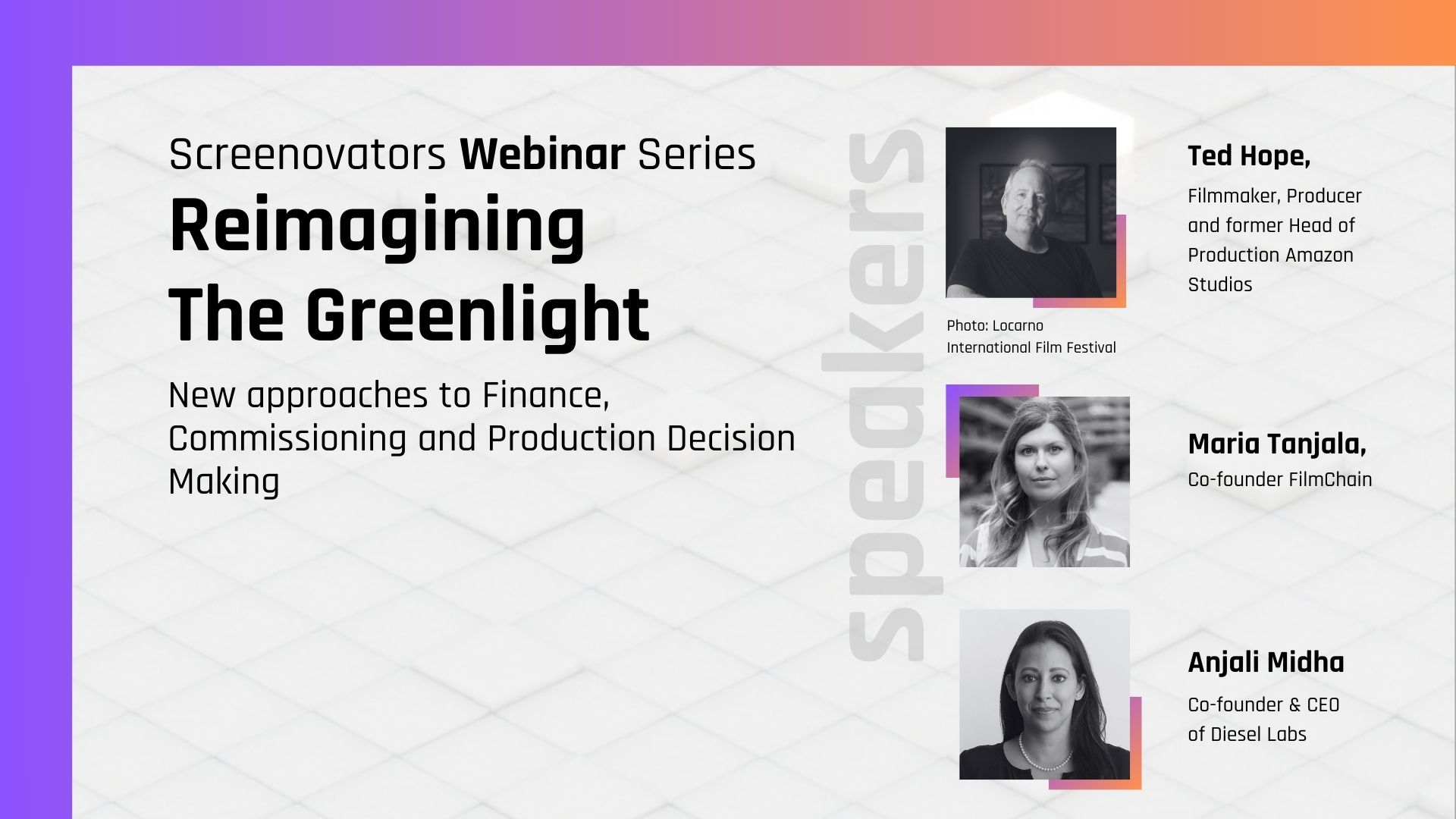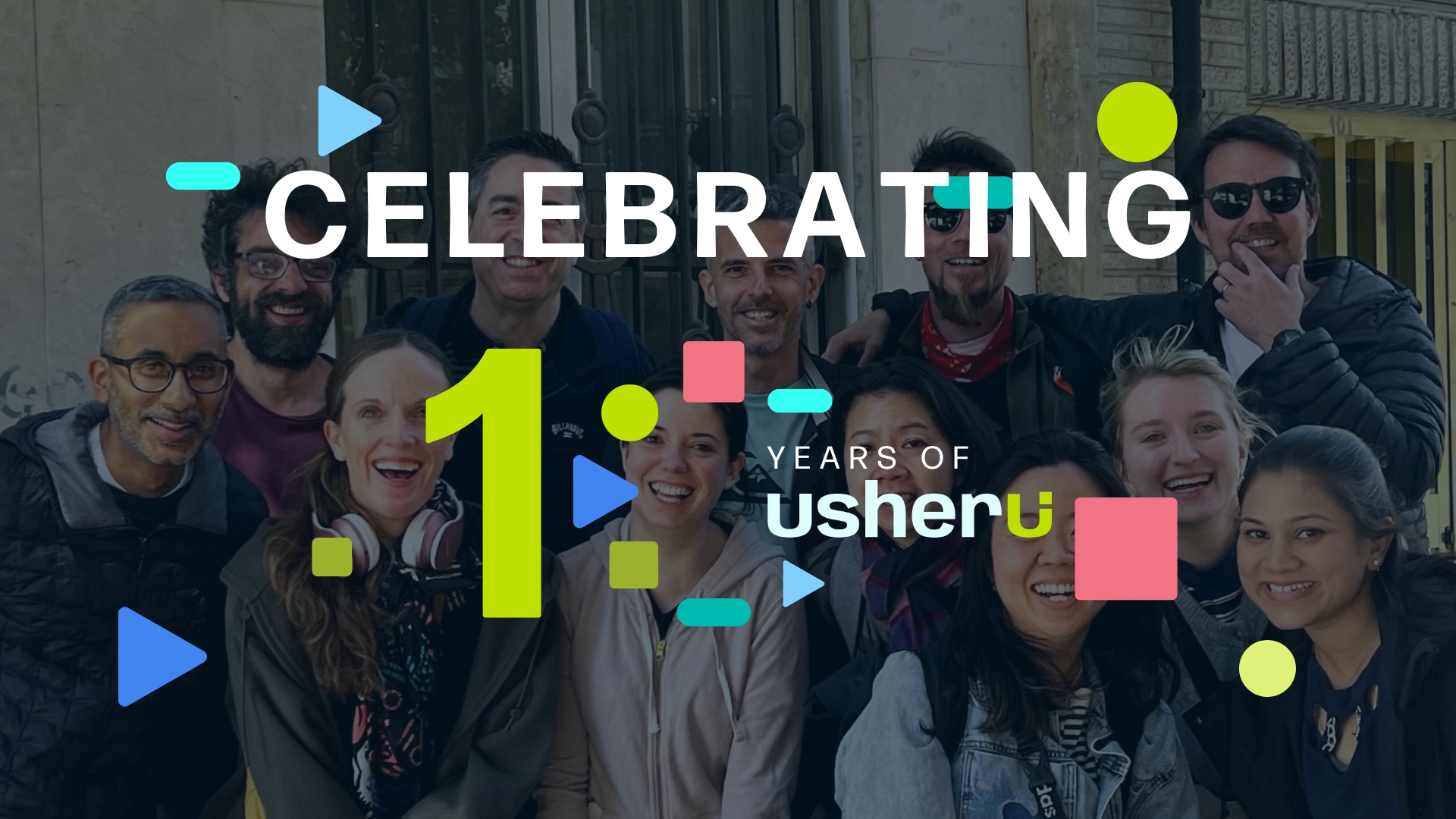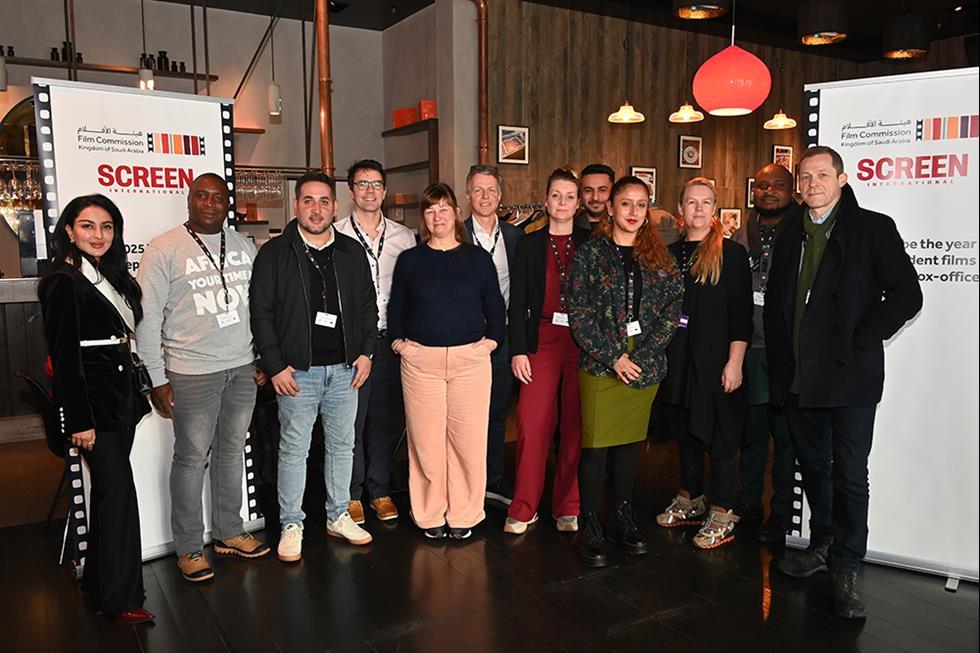Despite the recent good news about the strikes ending, unprecedented levels of competition and content continue to flood the system. So many films fail to cut through, missing the mark creatively and commercially. There remains an urgent need for better and more informed decision making ‘upstream’ but is there a better way?
In this piece, usheru Head of Content Alex Stolz shares insights learned in a recent Webinar.
The following ideas flow from the recent conversation with Irina Albita, Anjali Midha and Ted Hope from the recent webinar session, part of the usheru Screenovators Reimagine the Ecosystem series, available to rewatch here.
1. Build the Greenlight Process Back Better
“If we reduce everything down, the greenlight process [currently] is just about profit. It’s not about brand awareness. It’s not about goodwill that’s brought to our companies that are releasing these films. It’s not about gaining competitive advantage. It’s not about cultural relevancy. All of these things should be part of the greenlight process, not just the comps.” Ted Hope, Producer, Executive.
The current Greenlight model for independent film has failed to keep pace with changes in technology and audience behaviour. Data sets are siloed with private equity (and often public funding) directed to production alone, as opposed to distribution, marketing and infrastructure.
We are not addressing all of the changes that have occurred or using all the tools that we have and a more joined-up data-rich approach is crucial to avoid partially sighted decision-making and isolated efforts.
Equally, there is a need to invest in the infrastructure to create operational improvements.
2. All Boats Can Rise
“Every creator, every filmmaker deserves transparent information on data and their money.” Irina Albita, Filmchain
Transparent and accessible financial and audience data will benefit all parties – enabling smarter, longer term strategies and informed decision for both filmmakers and financiers.
Financial data also means rich metadata, myriad information points that paint a much broader picture of a film’s journey from geographic breakdowns to revenue and platform distribution that can inform sustainable business planning.
This can, as Anjali Midha, CEO of Diesel Labs, argues, “help us come to the two sides of the table and arrive at something satisfactory where both parties feel like they’re actually gaining tremendous value out of the transaction”.
3. Unprecedented Challenges. New Opportunities.
“It used to be that getting your project funded was like the biggest milestone, and now it feels like there are several other equally significant milestones that have to be met through the process, including what is the marketing strategy?” – Anjali Midha, Diesel Labs
The staggering amount of content released and the multiplicity of platforms it appears on has irrevocably diffused the audience, disrupting traditional marketing approaches. But the dynamic nature of this media environment, the fact that anyone can theoretically be reached at any time and the granular quality of data creates new and radical opportunities for engagement and creativity.
“Film is a living, breathing thing that you need to react in real time to, and we have the ability to do that, and yet we haven’t unlocked it… we haven’t actually unlocked the full potential of our product.“ Ted Hope
The Path Forward
“At the end of the day, this is not a technology problem… it’s an adoption problem.” – Irina Albita
The technology and tools are available to start making these changes now but it requires adoption, leadership and a degree of collective action. At Screenovators we are building a community of like minded individuals within the national film organisations ecosystem to support and empower these changes.
“We want to make sure that everything is fair, that we’ve embarked on processes that provide act transparency and access to the data, that we are trying to build a sustainable film ecosystem that has multiple revenue points and allows for new entries and a fair level playing field and fair competition. And we have to build in innovation as a goal to our process. It has to be fair, safe, innovative and, frankly, fun.” – Ted Hope





